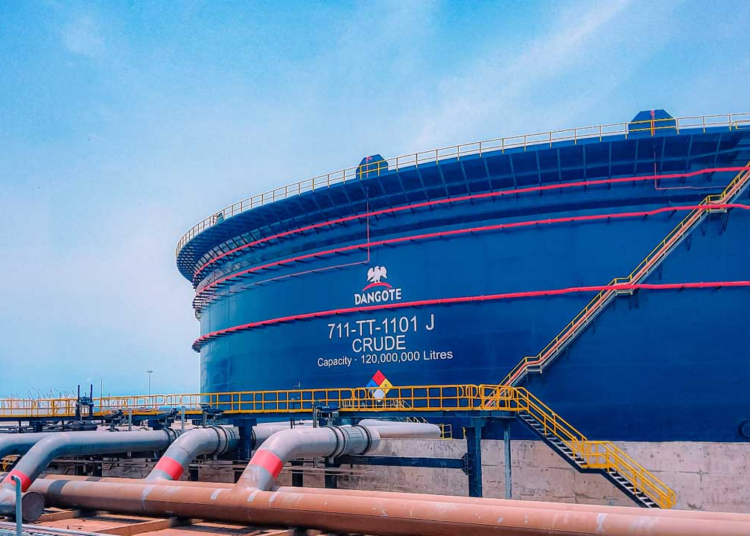The Dangote Oil Refinery will stop importing crude oil and rely entirely on Nigerian supply by December 2025, a report by Bloomberg has disclosed.
The 650,000-barrel-per-day facility in Lagos, aims to fully transition to domestic crude supply to eliminate the need for hundreds of thousands of barrels of imported oil daily.
The reports also stated that the refinery sourced about 53 per cent of its crude from local producers in June, while the remaining 47 per cent came from the United States.
The proportion of local oil is expected to increase in the coming months.
Vice President at Dangote Industries overseeing the refinery, Devakumar Edwin, revealed that contracts with foreign crude suppliers are nearing expiration and will not be renewed.
“We expect some of the long-term contracts will expire. Personally, and as a company, we expect that before the end of the year, we can transition 100 percent to local crude,” Edwin was quoted as saying.
The refinery has previously relied on crude imports from the U.S., Brazil, Angola, Ghana, and Equatorial Guinea. This reliance was partly due to initial shortfalls in local supply caused by sabotage, oil theft, and pipeline vandalism in the Niger Delta.
The Nigerian Upstream Petroleum Regulatory Commission (NUPRC) had earlier reported resistance from some oil producers to the government’s Domestic Crude Supply Obligations (DCSO), which mandates that a portion of local crude be allocated to Nigerian refineries.
Despite the challenges, Edwin noted that improved collaboration between the refinery, local oil traders, and government authorities is expected to ensure a more stable supply of Nigerian crude.
Aliko Dangote, the refinery’s founder, has repeatedly emphasised that the $20 billion facility was built to reverse the inefficiency of exporting Nigerian crude only to re-import refined products at a higher cost.
The refinery is currently processing 550,000 barrels of crude daily, edging closer to its full capacity.
According to a cargo allocation list seen by Bloomberg, Dangote is scheduled to receive five shipments from the Nigerian National Petroleum Company Limited (NNPC) in July and August, each containing nearly one million barrels.
The refinery’s ramp-up has already contributed to Nigeria becoming a net exporter of petroleum products, signalling a potential turning point for the country’s energy sector.











